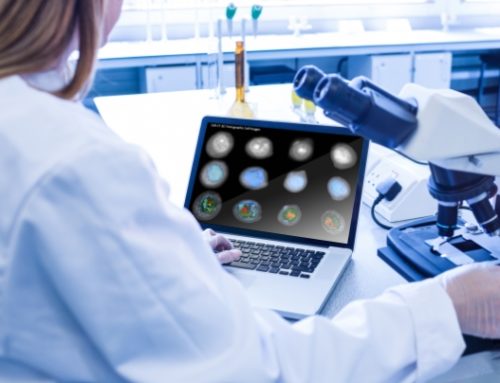The City of Phoenix is Opening the World’s First Biomedical 3D Cellular Imaging Lab
World’s First Biomedical Cell-CT Research Lap to Open in Phoenix
| PHOENIX, Sept. 10 — The city of Phoenix issued the following news release:
The city of Phoenix, in partnership with VisionGate, Inc., is opening the world’s first biomedical 3D cellular imaging lab. The Cell-CT research lab, located on the Phoenix Biomedical Campus in downtown Phoenix, is seeking proposals from researchers in universities and nonprofit organizations to utilize the Cell-CT imaging device. Arizona researchers will use this breakthrough technology to further their investigations to understand, predict and diagnose cell function (or dysfunction) at the level of a single cell. Uses include studying 3D cell images to identify biosignatures that correlate with cell incipient disease, enabling early detection before disease is not reversible. “The 3D/ Cell-CT research lab which is open to our state universities and nonprofit entities places Phoenix at the forefront of a new generation of medical imaging and research unique in the world,” said Jason Harris, deputy director, Phoenix Community and Economic Development Department. “The partnership we have with VisionGate can improve health-care outcomes, advance biomedical research and also have a positive economic impact on Phoenix, which is the goal of the Phoenix Biomedical Campus.” VisionGate is the first for-profit company to locate to the Phoenix Biomedical Campus and is developing a non-invasive diagnostic test for lung cancer. “Lung cancer is the leading cause of cancer deaths for both men and women,” said Scarlett Spring, president, VisionGate. “More people die of lung cancer than colon, breast and prostate cancers combined, an estimated 160,000 deaths annually in the U.S. In two-thirds of the cases, lung cancer has already spread to regional lymph nodes or beyond at the time of initial diagnosis. Finding the disease early is the key to making a significant impact and that brings us back to the Cell-CT research lab. We believe that 3D cellular imaging technology will yield groundbreaking research and clinical utility in the early detection of disease and we’re pleased to be partnering with the city of Phoenix and the Arizona biomedical community in this effort.” VisionGate relocated from the Seattle area with the assistance of the city of Phoenix and Greater Phoenix Economic Council (GPEC). VisionGate is bringing high-wage jobs and future employment opportunities, along with its state-of-the-art technology. “Enabling other researchers to use VisionGate’s cutting-edge technology is an economic boon to Greater Phoenix,” said Barry Broome, GPEC president and CEO. “VisionGate’s innovation and revolutionary technology is helping to continue building momentum in Greater Phoenix’s bioscience community.” Researchers will submit proposals to the Cell-CT Scientific Advisory Board for review and once accepted, time will be scheduled for researchers on the imaging equipment. An orientation is scheduled from 1 to 3:30 p.m. on Friday, Oct. 8, at the offices of the Greater Phoenix Economic Council, at 2 N. Central Ave., suite 2500. Lab devices and training are available at no cost to Arizona public and nonprofit research entities. |



